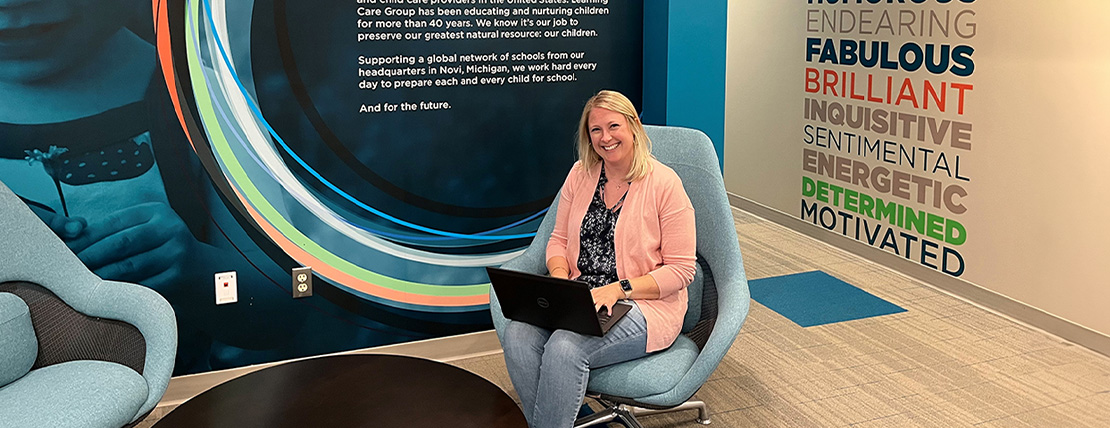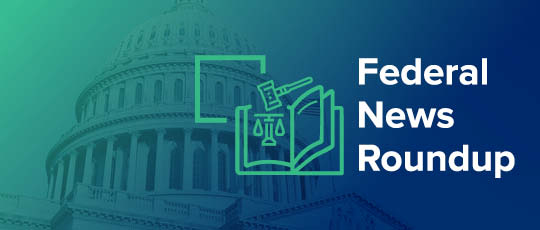When Jamie Higdon, CCP, PHR, SHRM-C, was getting started in HR, she was asked a classic interview question: “What are you passionate about?” At the time, she was interviewing for a spot in a HR development program with Domino’s Pizza, and she felt pulled toward employee relations over the nuts-and-bolts of compensation and benefits.
But as she rotated through various HR functions at the popular pizza chain, her perspective changed.
“I became aware of the value of what comp and benefits — the bedrock of total rewards — really provided,” explained Higdon, who is now vice president of talent attraction and total rewards for Michigan-based Learning Care Group, a provider of early education and child-care services. “I learned it’s not all about crunching numbers but about the impact total rewards has on an organization when it focuses on process improvement with the outcome of increased employee engagement in mind.”
Total Rewards: A Growing Investment
A recent Gartner survey of 118 HR leaders identified total rewards as the third-largest investment area in 2023, up from fifth place in 2022. (Also landing in the top four were HR technology, staffing and recruiting, and learning and development.) Respondents indicated that as HR functions struggle with organizational cost constraints, they are simultaneously faced with trying to provide additional financial support to employees affected by today’s cost-of-living increase, while avoiding inflation woes.
The Gartner research noted that HR functions are boosting total rewards investments by focusing on equitable reward and recognition programs, pay transparency, and well-being programs. This includes outlays in areas such as compensation planning technologies, pay equity tools, and smart wearable technology to monitor employee stress and fitness levels.
Switching Careers
Before joining the world of HR, Higdon, 42, was a preschool teacher for two years. While she acknowledged that working in early childhood education is rewarding, she said it is also emotionally taxing and has a high burnout rate. So, after some reflection, she decided to switch careers in 2005.
“I thought I might pursue something like financial planning, but I changed course after learning about what HR was and realizing that it was also a profession that focused on helping people in their development as well as their day-to-day work,” Higdon said.
Once she made that connection, she returned to school and earned another bachelor’s degree — this time in business administration and human resources development. Her love for learning and continual development would pop up again multiple times throughout in her career.
Along with her formal education, Higdon also credits a mentoring relationship with a manager at Domino’s Pizza for contributing to her early professional development. The manager, she said, invested in her and instilled confidence in her to ask questions and stay curious about the company. This helped Higdon develop her quantitative abilities.
“That approach really helped my foray into leadership,” Higdon said. “(The manager) also taught me practical skills in Excel, which I soaked up like a sponge. From there, I continued to hone those skills by taking on projects requiring a greater degree of analytical knowledge and/or Excel skills. Later, when I became a manager myself, I made sure I developed my team in a similar way.”
Growing Into Her Role
When Higdon joined Learning Care Group in 2010 as a compensation analyst, she was able to leverage both her business and her early childhood education experience. Higdon said for both roles it took a lot of patience, and like preschoolers, “people just want their feelings to be recognized and know that someone hears their concerns.” Additionally, staying diplomatic and calm — whether it is in the chaotic classroom or in stressful business environments — has served her well, she said.
“It was certainly a learning experience in those early years, but they shaped me into a better leader,” Higdon said.
In 2020, just as the COVID-19 pandemic hit, Higdon was in the middle of completing an executive education program through Columbia Business School and UC Berkeley, with a focus on leading strategic growth and accelerating change readiness and agility. For the next two years, she applied her academic insights to Learning Care Group’s pandemic-driven challenges, such as the closure of child-care centers and its impact on employees. To address these challenges, Higdon discovered the importance of connectedness.
“As an HR team and a business, we were focused on the best and quickest way to safely reopen our schools and get our employees back to work,” she said. “This common goal led to us really grow in a way where we could connect.”
The skills she developed in the executive education program were also instrumental during Learning Care Group’s 2019 HR transformation process, which Higdon led.
“It was one of the most pivotal experiences of my career,” she said. “It allowed me to really dive deep into our processes and ask how our HR serves our employees best, and if it doesn’t, how can we look to improve?”
Higdon described it as a large exercise in change management for herself, her team, and the company’s overall leadership and employees.
The initiative helped her to understand “the end to end” from an HR and total rewards perspective, she said. “Prior to this transformation, we had 20-plus disparate systems that often didn’t talk to each other,” she explained. “Understanding how all our processes worked together was highly beneficial to ensure we designed the employee experience appropriately.”
“One specific program we added was a family resource strategy,” Higdon said. “It’s about supporting families when they are welcoming new children, through birth or adoption, as well as raising children, especially teens.
“Employees need a level of support for so many things that happen outside of the workday, such as a mother whose toddler won’t sleep at night, which leads her to come to work tired and disengaged. Now, we offer a family-centered care solution free to employees through a third-party vendor to provide some real wraparound for work and life.”
Lifelong Learner
Throughout her career, Higdon has continued to develop her skills in a number of ways so she can stay up to date on industry changes. For example, she earned her CCP through WorldatWork’s certification program.
“The CCP really strengthened skills that were very foundational to helping me approach analyzing the data we are seeing now,” Higdon said. “As for keeping up with the skills and trends of the total rewards world, I stay connected through conferences, networking, and I continue to pursue education, which is very important and worth the time that it requires.”
In the summer of 2022, Higdon added talent acquisition skills to her total rewards role in addition to her current responsibilities of HR operations and payroll for Learning Care Group.
Higdon said after obtaining those skills, she gained a much different perspective on the business and the challenges staffing can create in their schools. The skills also taught her to find creative ways to solve those challenges by partnering with other HR areas.
“I have seen more and more connection points that allow better outcomes,” she said.
Looking ahead to what skills she might need in the future, Higdon is keeping an eye on AI. “I think we are only seeing the tip of the iceberg of what is to come in AI,” she said. “There is a fine balance required to ensure ethical and sound decisions because it is so new. We are in research mode this year on many things (related to) AI and how it can benefit our employees or candidates.”
Pay transparency is another area Higdon is focused on. Learning Care Group has operations in 38 states, seven of which have pay transparency regulations in place. “All of them have slight variations, so keeping pace with them — while also ensuring consistency in our compensation practices — is interesting,” she said.
“Learning both HR and total rewards roles provides a more holistic view of what employee and business needs are to ensure the right balance.”
Forging a Partnership
As a professional whose path has led her from the most basic functions of HR to a leadership role encompassing not only total rewards but also talent acquisition and retention, Higdon has learned some important lessons.
Overall, she believes, it’s important to understand that HR and total rewards professionals have to be partners with a common goal: providing an exceptional employee experience. “Too often, it’s easy to fall back on just being in your own department, and that really silos us from understanding how various inputs from other departments can make the outcomes even better,” she said.
Higdon encouraged HR and total rewards leaders to spend time learning each other’s roles and responsibilities.
The industry is constantly evolving, she said, so what worked five years ago may no longer work today. “Unless you have (your finger on) the pulse of what is occurring in total rewards and an understanding of how to implement that in your organization,” Higdon added, “you are going to be left behind as to what candidates and employees are looking for.
“Learning both HR and total rewards roles provides a more holistic view of what employee and business needs are to ensure the right balance. If you have more tools in your toolbox, you are better able to address any problem that arises.”
Editor’s Note: Additional Content
For more information and resources related to this article see the pages below, which offer quick access to all WorldatWork content on these topics:







